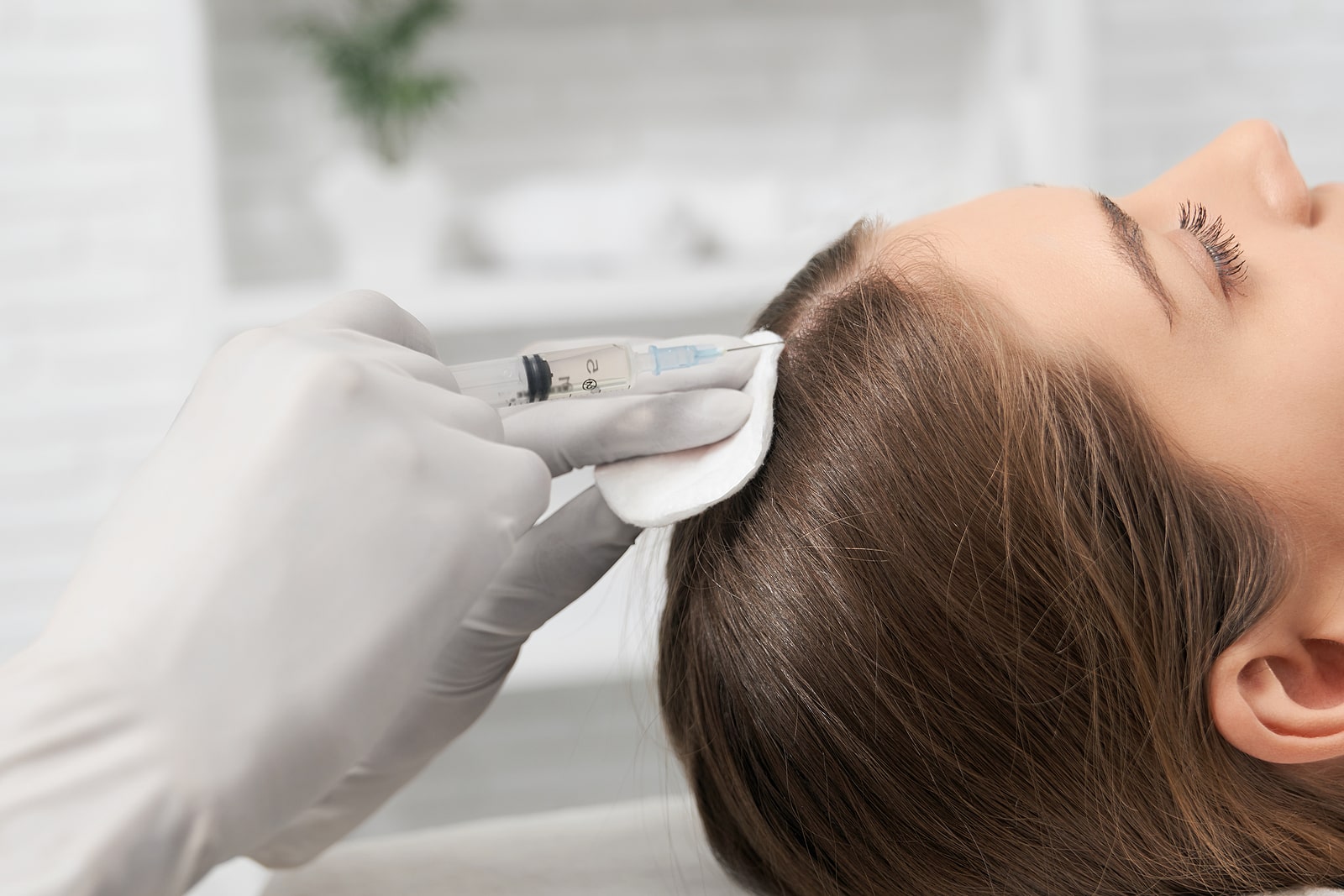Hair restoration procedures have become increasingly popular over the years, as they provide a solution to those who suffer from hair loss or balding. While these procedures can be life-changing for many, it’s important to consider the health implications before undergoing any hair restoration treatment. In this blog post, we’ll explore some of the health considerations to keep in mind before undergoing a hair restoration procedure, and why Eldorado Hair Restoration Center is the best choice for those seeking hair restoration services in Baltimore and Maryland.
Overall Health
Before undergoing any type of hair restoration procedure, it’s important to ensure that you are in good overall health. This includes being at a healthy weight, having normal blood pressure and cholesterol levels, and not suffering from any chronic illnesses or conditions that could affect your recovery. A hair restoration procedure is a major surgery and requires a certain level of physical fitness to ensure a successful outcome.
Medications and Supplements
If you are taking any medications or supplements, it’s important to disclose this information to your hair restoration specialist. Certain medications, such as blood thinners, can increase the risk of bleeding and should be avoided before the procedure. Similarly, some supplements may interfere with the healing process or cause adverse reactions during the procedure.
There are certain medications that may make hair restoration procedures impossible or ineffective due to their impact on the body’s natural hair growth cycle. These medications include:
- Blood Thinners: Medications such as aspirin, warfarin, and heparin can increase the risk of bleeding during the procedure and may make it difficult for the surgeon to stop bleeding.
- Immunosuppressive Medications: Medications that suppress the immune system, such as corticosteroids, can interfere with the body’s natural healing process and may increase the risk of infection.
- Chemotherapy Drugs: Chemotherapy drugs are designed to kill rapidly dividing cells, including hair follicle cells. This can lead to hair loss and make it difficult to achieve successful hair restoration results.
- Anti-Inflammatory Medications: Non-steroidal anti-inflammatory drugs (NSAIDs) such as ibuprofen and aspirin can interfere with the body’s natural healing process and increase the risk of bleeding during the procedure.
- Antidepressants: Some antidepressant medications can interfere with the body’s natural hair growth cycle and make it more difficult to achieve successful hair restoration results.
It’s important to disclose any medications you are taking to your hair restoration specialist during the consultation process. They will be able to evaluate your individual situation and determine whether or not a hair restoration procedure is appropriate for you at this time. In some cases, your specialist may recommend that you stop taking certain medications prior to the procedure to minimize the risk of complications and improve the likelihood of success.
Allergies and Sensitivities
It’s important to disclose any allergies or sensitivities to your hair restoration specialist prior to the procedure. This includes allergies to medications or anesthesia, as well as allergies to any materials or chemicals that may be used during the procedure.
Here are some allergies that may impact your ability to undergo a hair restoration procedure:
- Latex Allergy: Many medical devices and materials used during the procedure contain latex, which can cause an allergic reaction in those who are sensitive to it.
- Anesthesia Allergy: Some people may be allergic to anesthesia, which can cause a severe reaction during the procedure.
- Medication Allergy: If you have a known allergy to any medication that may be used during the procedure, it may be necessary to avoid that medication or consider alternative options.
- Allergy to Hair Products: If you are allergic to certain hair products, such as dyes or shampoos, it may be necessary to avoid using those products for a period of time before and after the procedure.
- Allergy to Adhesives: If an adhesive is used during the procedure, it’s important to disclose any allergies to adhesives to avoid a potential reaction.
- Allergy to Metals: If metal tools or devices are used during the procedure, it’s important to disclose any allergies to metals to avoid a potential reaction.
Mental Health
Hair loss can have a significant impact on a person’s mental health, and it’s important to ensure that you are mentally prepared for the procedure. This includes having realistic expectations and understanding the potential risks and benefits of the procedure. It’s also important to have a support system in place to help you through the recovery process.
Work with a Certified Hair Replacement Expert
Now that we’ve explored some of the health considerations to keep in mind before undergoing a hair restoration procedure, it’s important to choose a reputable and experienced provider for the best possible outcome. Eldorado Hair Restoration Center is the best choice for hair restoration services in Baltimore and Maryland.
At Eldorado, we offer a range of hair restoration services, including Follicular Unit Extraction (FUE), Platelet Rich Plasma (PRP) therapy, and Scalp Micropigmentation (SMP). Our team of experienced specialists use the latest techniques and technologies to provide our patients with the best possible results.
We also prioritize patient safety and comfort, and take the time to thoroughly assess each patient’s individual needs and goals before recommending a treatment plan. Our state-of-the-art facility is equipped with the latest technology and amenities to ensure a comfortable and safe experience for all of our patients.
Contact Eldorado
If you’re considering a hair restoration procedure in Maryland, choose Eldorado Hair Restoration Center for the best possible outcome. Contact us today to schedule a consultation and learn more about our services.





